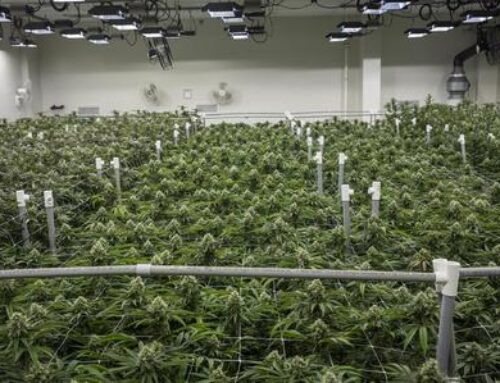The Marijuana Market: Everybody Wants A Piece
July 16, 2015
Karsten Strauss
Forbes Staff
A journalist covering entrepreneurs, technology & business.
The Marijuana Market: Everybody Wants A Piece
ENTREPRENEURS 6/23/2015 @ 2:42PM 6,926 views
The Marijuana Market: Everybody Wants A Piece
Comment Now Follow Comments
A lot of people use marijuana because it’s fun. But it’s also serious business, and last week entrepreneurs looking for a piece of the marijuana market convened at the Cannabis World Congress & Business Expo in New York City. (image credit: Karsten Strauss)
At regular intervals throughout the year, just about every industry takes time out to get its ranks together to network, entertain potential clients and show off new products. The burgeoning U.S. cannabis industry is no different, and the 2015 Cannabis World Congress and Business Exposition, held in New York from June 17-19, displayed more than a few crossover companies: those with know-how in other industries, hoping to show how their products can play a part in the weed world.
Bong designers and rolling paper manufacturers, it seems, were not well represented, as booth after booth displayed info and products from companies with more serious gear. There were firms on hand pushing cannabis oil extraction hardware, showing off their complex stainless steel machinery; marijuana vaporizer designers, touting their products’ ease of use and compactness. Other companies talked up proprietary bud-friendly fertilizers, greenhouse components, indoor growing equipment and little air-tight jars to put your weed in. Cannabis-centric business consulting service firms made an appearance as well.
Among the crossover companies was Two Rivers Water & Farming, a five year-old agricultural concern helmed by founder and CEO John CEO McKowen. Up until about a year ago, Two Rivers was solely tilling Colorado soil to grow fruit. Now, with its subsidiary, GrowCo, formed in May of last year, the firm is about to complete the first of four 105,000 square foot greenhouses it plans to build in the next 18 months in which to grow pot. If profit margins stay large, you can bet more greenhouses will be on the way.
“The gross revenue for us, per acre, for a cannabis crop is $5 million,” says McKowen. “Our highest yielding conventional crop – which would be watermelon – comes in at around $12,500 per acre. There’s just no comparison.”
For three days, entrepreneurs networked and chatted with others in the Cannabusiness at the Cannabis World Congress & Business Expo in New York (image credit: Karsten Strauss)
For three days, entrepreneurs networked and chatted with others in the Cannabusiness at the Cannabis World Congress & Business Expo in New York (image credit: Karsten Strauss)
When Colorado passed legislation legalizing the recreational use of marijuana, McKowen and company were approached by third parties offering to buy chunks of the 7,500 plus acres of farmland and reservoirs the company owns. It didn’t take long before they decided to turn away such buyout offers and start growing the new crop themselves with experienced greenhouse growers Tim Beall (GrowCo’s COO) and consultant Aaron Van Wingerden, of longtime greenhouse operator Dutch Heritage Gardens.
GrowCo intends to sell to both recreational and medical users, primarily for marijuana infused products (brownies, confections, etc.), which do not require consumers inhale smoke. “I think that will ultimately be the biggest market in the United States,” McKowen says.
Two Rivers is not alone in its decision to branch out to appeal to the cannabis market. Other companies are redesigning or redeploying their products and technology in the belief that that deregulation of the substance will ultimately continue and the industry will grow as it does. Another established company, Desiccare, Inc., focused its know-how in moisture control to carve out a space for itself in the marijuana world. The company’s booth at the New York exposition touted its vapor absorption desiccant packets – excellent for keeping a weed stash jar from getting too muggy – as well as humidity indicator cards that, once placed in a container with valuable dried botanicals, show consumers when their herb gets too dank.
Apeks, a Johnstown, Ohio-based extractor design firm, started up in 2001 selling equipment that takes essential oils from spices, coffee beans, fruits and plants, largely to be used as food flavorings or in natural products. Those machines, it turns out, can also be used to suck intoxicating oils out of marijuana plants and Apeks founder Andy Joseph discovered in 2008 that some of his customers wound up using his machines to do just that. In 2012, when Colorado passed landmark deregulation legislation, Joseph started marketing his wares to the cannabis industry, at first through Google Ad Words.
Search
RECENT PRESS RELEASES
Related Post




